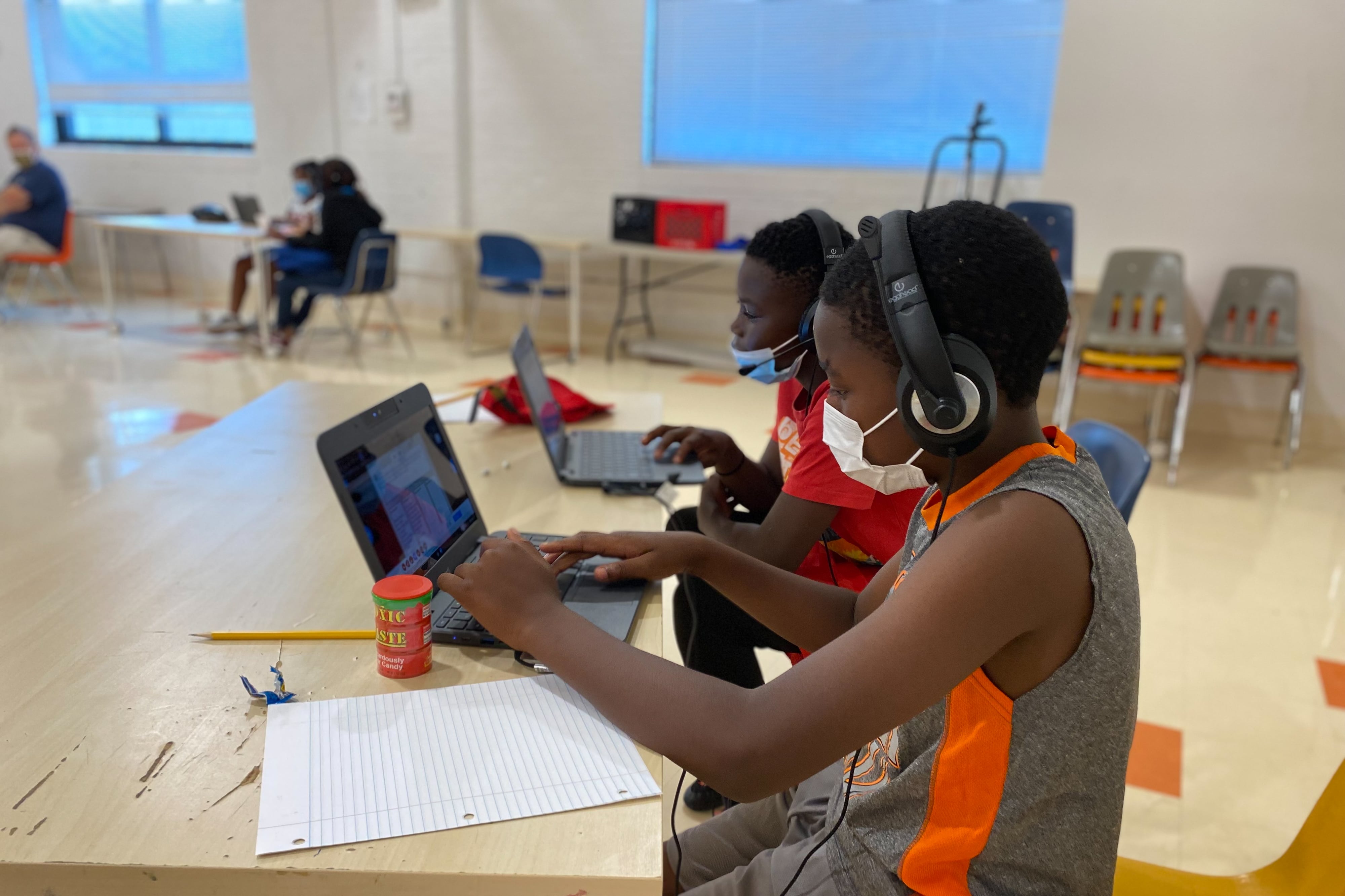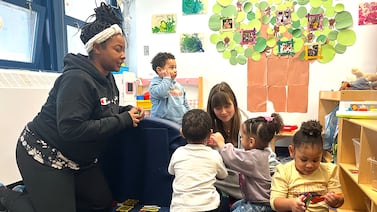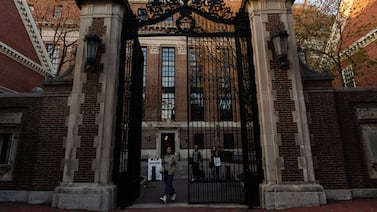Fourth-grader Safiya Armstead would rather be at the beach.
Instead she’s attending summer school where she’s learning to add multiple numbers and playing new fun games. She pushed through even when the math hurt her brain.
“I just keep working hard and going forward,” said Safiya, 9.
Safiya and nearly 4,000 other Indianapolis students are enrolled in the five-week-long Summer Learning Labs created to get students up to speed after a year and a half of pandemic learning loss.
The new program is open to all rising first through ninth graders in Marion County regardless of academic standing, unlike some programs run separately by districts only for struggling students. The Mind Trust and the United Way of Central Indiana partnered to run the program at community centers and schools, all using the same curriculum in English and math in the morning followed by enrichment activities in the afternoon.
In schools, both academic instruction and enrichment are provided in person. At community centers, the academic portion is handled virtually.
Brandon Brown, the chief executive officer for The Mind Trust, said the idea for the learning labs came from conversations with families and schools throughout the pandemic.
“It was clear that there were a lot of missed learning opportunities,” Brown said. “It was hard for schools to navigate everything with COVID and plan for something over the summer as well.”
Brown pointed to the 2021 ILEARN results confirming what students lost in the last year and a half. Only 28.6% of Indiana students passed both English and math. In Marion County, 15.9% passed both English and math tests.
In all 39 locations, about 200 teachers use a curriculum provided by Lavinia Group, a six-year-old company founded by a former senior managing director at Success Academy, the largest and most controversial charter network in New York.
Teachers had three days of training prior to the start of the program and have had professional development every week.
During training sessions, teachers bring in student work to analyze and determine what small groups are needed and what supports to give. While the program’s materials are standardized nationwide, school leaders modify lessons based on the needs of their students, Jackie Taslim, the chief program officer for Lavinia Group, said. The company, she said, provides very detailed lesson plans and guidance for teachers.
Taslim said teachers develop a roadmap for students, attempting to anticipate student questions and figure out how students will arrive at their answers.
“The more intellectually prepared you are as a teacher, it frees you up so that you can really listen to kids and adjust and navigate in the moment so that you’re really being responsive to students,” Taslim said.
After looking at ILEARN test results, Tia Taylor, the assistant head of school at The PATH School who leads her campus’ summer lab, said she and her staff have a lot of work to do.
Only 2.4% of students passed both ELA and Math ILEARN tests.
Last month, when the 88 students enrolled in the program at the school took the Lavinia pre-assessment, scores showed students were either significantly below or “right on the bubble,” Taylor said.
This week, the last week of the program, students are taking post-assessments.
She’s crossed her fingers for growth, not necessarily just proficiency.
“If they’ve mastered one standard that’s a celebration,” Taylor said. “Especially when we think about learning loss and where we serve.”
She’s seen improvement even though teachers and students at her school found the lessons challenging. She said it’s important to give kids high expectations and space to get where they need to be. She, like Brown, believes in accelerating, not just remediating, students by teaching them grade level content, even if it may seem tough. She thinks focusing only on remediation is a mistake that many schools make.
“I’m a firm believer that if you never teach to the top, you’re never going to get kids there,” Taylor said. “Our kids need it. We give them the opportunity and allow them the space to get there.”
After the summer labs end and the school year begins, teachers will receive the data about their students. From there, teachers would be able to form small groups and plan interventions from day one.
She said to fill in the gaps, her school will have more intervention staff this year.
“I think intentionality is going to be key and how we use our intervention staff,” Taylor said. “It’s about how you use and allocate those resources to ensure that kids are getting some of that learning loss made up based on their needs.”
After a morning of instruction every day, students participate in a range of activities like digital portfolio projects, documentary filmmaking, and fashion design in the afternoon.
The Mind Trust and United Way of Central Indiana made a joint investment of $500,000 to launch the initiative.
In June, the Indiana Department of Education announced that United Way of Central Indiana would receive over $11 million from the state’s $122 million Student Learning Recovery Grant Program for their partnership with The Mind Trust. It was the largest grant amount out of all of the applicants.
The students in community centers such as Edna Martin Christian Center on Ralston Avenue come from different school districts like Indianapolis Public Schools, Pike and Warren as well as some charter schools like KIPP.
Ashley Moore, the youth program coordinator at Edna Martin Christian Center, said about 40 students attend the lab at the center. She said it’s important to have the summer learning lab so that students are able to catch up, especially after a year and a half of back and forth from learning in-person, virtual, and hybrid settings.
“Because they get to practice those skills during the summer, it’s not going to be a complete shock when they have to reenter the school setting,” Moore said. “A lot of our students have struggled. Now, they’re able to get back in person and start to become reacclimated to that setting.”






